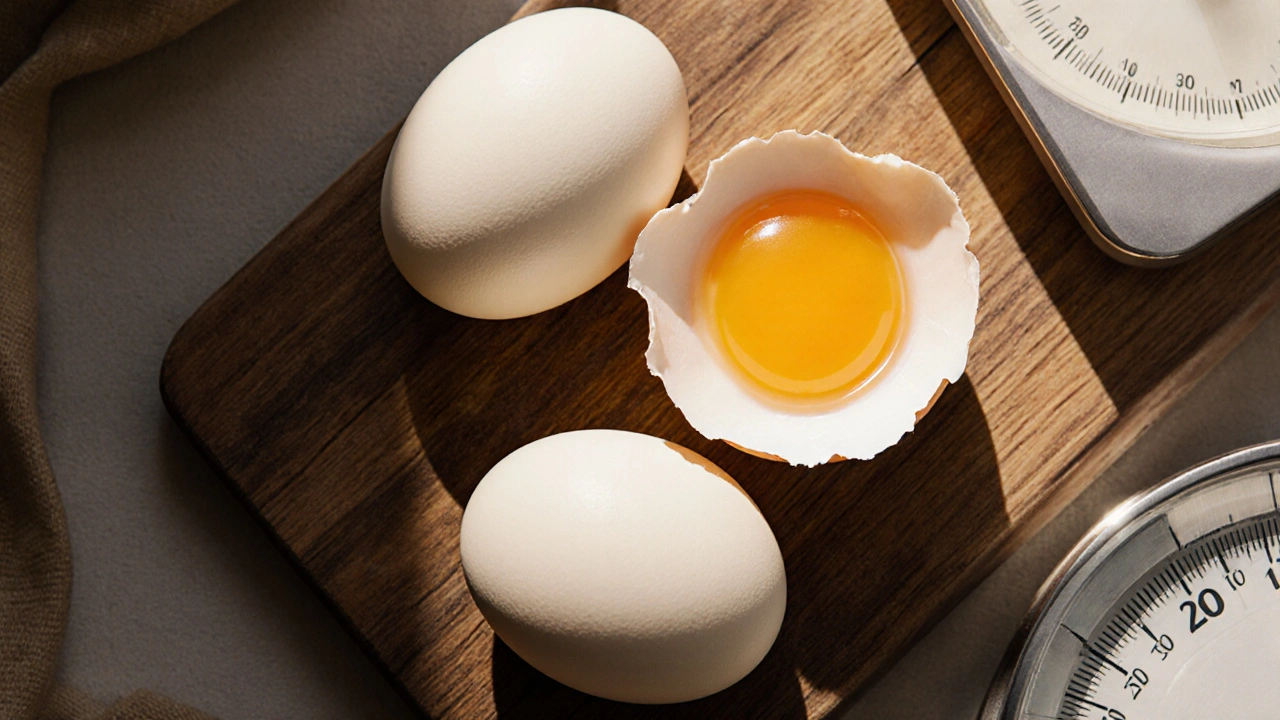Large Egg Calories: What You Need to Know
When working with large egg calories, the amount of energy a typical 50‑gram chicken egg provides (about 70 kcal). Also known as large egg calorie count, it helps you gauge how eggs fit into daily nutrition plans.
Understanding egg nutrition, the blend of protein, fats, vitamins and minerals found in eggs is the next step. A single large egg packs roughly 6 grams of high‑quality protein content, the muscle‑building nutrient that athletes rely on. At the same time, it delivers about 186 mg of cholesterol, a dietary component often debated in heart‑health discussions. These facts create a clear semantic triple: large egg calories encompass protein content, cholesterol, and overall egg nutrition. The calorie figure isn’t just a number; it tells you how much energy you’ll get before you even consider the other nutrients.
Why Egg Calories Matter for Sports, Weight Management, and Everyday Meals
For anyone planning a pre‑game meal, the calorie count is a quick gauge of how much fuel you’ll have without over‑loading. dietary guidelines, official recommendations that balance calories, protein, and fat for health often cite eggs as a nutrient‑dense option that fits within a 2000‑kcal daily plan. When you compare a large egg’s 70 kcal to a typical energy drink that can exceed 150 kcal plus added sugars, the egg becomes a low‑calorie, high‑protein alternative that supports steady energy release. This relationship—"dietary guidelines influence weight management"—shows why athletes and everyday eaters alike keep an eye on the egg’s calorie profile.
Weight‑loss seekers also benefit from the energy‑to‑protein ratio. At 70 kcal, a large egg delivers enough protein to help preserve lean muscle during a calorie deficit, while staying under the typical 200‑kcal snack threshold. For a quick breakfast, pairing two large eggs (≈140 kcal) with a handful of veggies gives you a balanced start that won’t spike blood sugar, unlike sugary drinks. The connection between large egg calories and satiety is simple: fewer calories combined with high protein keep hunger at bay longer, making it easier to follow dietary guidelines without feeling deprived.
Beyond sports and weight loss, many readers wonder how the egg’s cholesterol fits into heart‑health concerns. Recent research shows that dietary cholesterol from a single egg has minimal impact on blood cholesterol for most people, especially when the overall diet is balanced. This insight forms another semantic link: "cholesterol influences heart‑health perception, but egg nutrition provides compensating benefits." So, if you track calories, you can also keep an eye on cholesterol without fearing it will derail your diet.
All this means the simple question, “how many calories are in a large egg?” opens a broader conversation about protein, cholesterol, and how the egg fits into the bigger picture of nutrition. Below you’ll find articles that dive deeper into pre‑game meals, low‑calorie energy drinks, blood‑pressure friendly beverages, and more—each tying back to the core idea of using calories wisely.
Find the exact calorie count for two eggs, see how size and cooking method affect the numbers, and get tips for low‑calorie meals.

